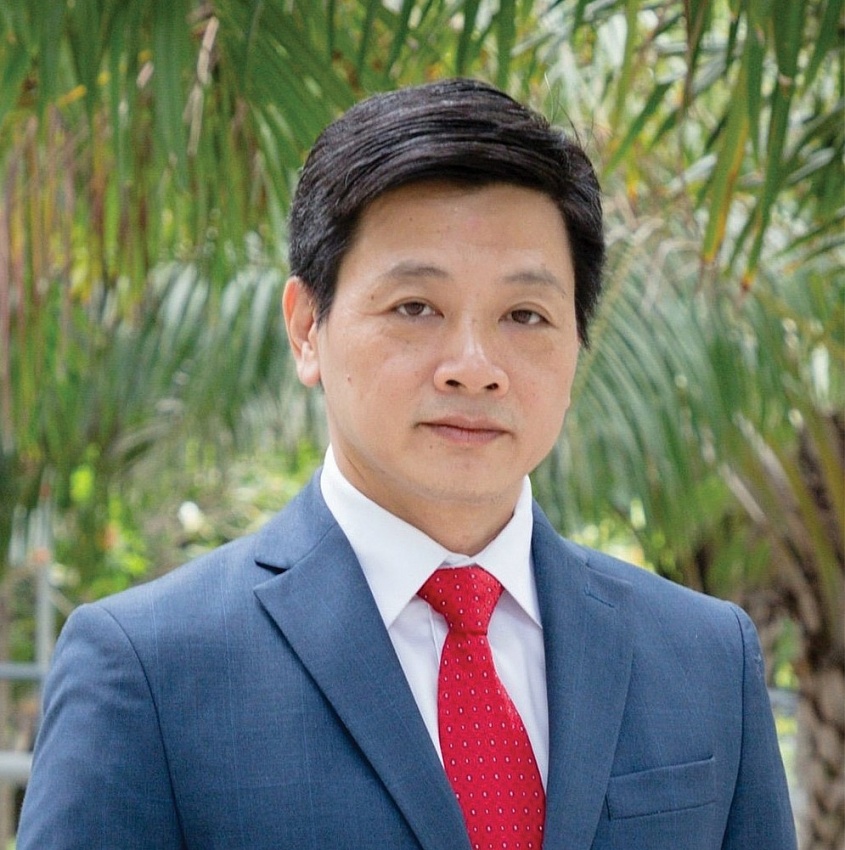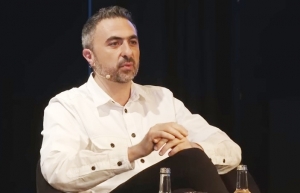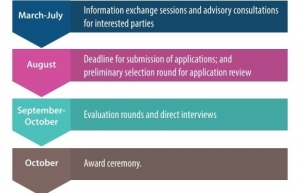Barriers to AI utilisation in Vietnam can be overcome
Is there any connection between blockchain technology and AI, and what support can the concurrent development of both blockchain and AI provide for businesses in their operations?
 |
| Dao Trung Thanh, deputy general director of the Academy of Blockchain and AI Innovation under the Vietnam Blockchain Association |
Blockchain and AI, two of the most forward-thinking technologies today, possess a unique relationship that can significantly enhance business operations. While blockchain provides a secure and transparent way to record transactions, AI excels in analysing data to make intelligent decisions.
The simultaneous development of blockchain and AI can be a game-changer for businesses. Blockchain can securely store the data AI needs to learn, while AI can optimise blockchain’s efficiency by analysing and organising its data more effectively. This synergy can lead to improved operational efficiencies, cost reductions, and enhanced customer experiences.
In practical terms, integrating these technologies can make supply chains more transparent and efficient, ensure the integrity of data-driven decisions, and enable more personalised customer service through data analysis.
The convergence of blockchain and AI presents a potent opportunity for businesses to innovate and streamline their operations, marking a step towards a more integrated, efficient, and competitive future.
What is the Vietnam Blockchain Association’s (VBA) assessment of business AI adoption readiness and where does AI stand in Vietnam’s industry landscape?
According to the Government AI Readiness Index 2023 by Oxford Insights, Vietnam has shown commendable progress in its readiness for AI adoption. Moving up from sixth place in 2022, Vietnam now ranks fifth in the ASEAN region, overtaking the Philippines. This places Vietnam behind Singapore, Malaysia, Thailand, and Indonesia, showcasing significant strides in embracing AI technologies.
In Vietnam, AI technology is extensively applied in the telecommunications, finance, and media sectors, indicating these industries’ forefront in adopting AI innovations. However, the manufacturing sector is yet to fully capitalise on the potential AI offers.
However, the bright spot is that the Vietnamese government recently issued a national strategy on AI towards 2030, with the goal of gradually turning Vietnam into an innovation centre and AI in the top four in ASEAN and in the top 50 worldwide. Therefore, I believe that Vietnam will have more development resources and will achieve significant success in this field.
What is the most significant barrier for Vietnamese businesses in adopting AI technology? What recommendations does he offer to resolve this issue?
I believe the most significant barrier is the selection of inappropriate technologies that might not fit the specific context or scale of Vietnamese businesses. There’s also a tendency to have unclear strategies for AI implementation, which can lead to confusion and misallocated resources.
Another major issue is inadequate training for staff, which hampers user adoption. Many businesses don’t evaluate or update their AI systems frequently enough, which can lead to obsolescence and inefficiency. And it’s crucial but often challenging to find tech partners who offer the right support. Finally, security and compliance are sometimes an afterthought, which they absolutely should never be.
My recommendation to overcome these challenges would be first to ensure that the technology choice is well-matched to the business’s needs. We need clear strategies and roadmaps for AI integration. Training is essential, as well as setting up a culture that embraces these new tools. Regularly updating and evaluating the tech we use keeps us competitive and efficient.
Building strong partnerships with tech providers is key for support and successful implementation, and lastly, but just as importantly, we must prioritise security and compliance right from the start.
What actions are being taken to encourage member businesses to adopt and implement AI technology into their operations?
The VBA and its Academy of Blockchain and AI Innovation (ABAII) are at the forefront of promoting the adoption of AI technology among businesses through a comprehensive strategy that includes educational workshops, seminars, training programmes, industry-academia collaboration, and networking opportunities.
A central element of our efforts is the extensive offering of AI training programmes and educational outreach initiatives designed to equip professionals and students alike with essential AI skills and knowledge. The details include educational workshops and seminars, specialised training programmes, scholarships for AI education, industry-academia collaboration and networking.
We are organising a variety of workshops and seminars that aim to demystify AI technology for businesses across sectors, showcasing its applicability and benefits in enhancing operational efficiencies and fostering innovation.
Recognising the critical need for skilled AI professionals, ABAII plans to train about 100,000 participants in AI at various levels. This initiative underscores our commitment to building a comprehensive AI knowledge base across the professional spectrum.
ABAII’s Unitour programme specifically targets universities, engaging students in discussions about AI’s impact on future careers. By bringing AI’s relevance and potential to the academic sphere, this initiative aims to inspire the next generation of professionals to explore AI-driven career paths. In 2024, unitour programmes are expected to be held at 20-30 major universities across the country.
To make AI education more accessible, ABAII is also offering 1,000 scholarships for AI courses, ensuring that financial barriers do not hinder motivated individuals from pursuing AI knowledge and skills.
By fostering collaboration between academia and industry, and organising networking events, the VBA and ABAII create platforms for sharing AI experiences, challenges, and best practices, further enriching the ecosystem’s collective knowledge.
Through these multifaceted initiatives, we are not just advocating for the adoption of AI technology; they are actively facilitating the development of an AI-savvy workforce and creating a conducive environment for the integration of AI into various industries. Our efforts aim to ensure that businesses, professionals, and students are well-prepared to harness the opportunities presented by AI, positioning them for success in the digital transformation era.
 | Bangkok implements AI for weather forecasts Bangkok’s authorities have cooperated with Weathernews Inc., Japan to implement the AI Nowcast system, aiming to provide accurate forecasts of rainfall in the Bangkok region three hours ahead of time. |
 | Microsoft hires DeepMind co-founder to lead AI unit DeepMind co-founder Mustafa Suleyman will become the head of a newly created consumer AI unit at Microsoft, the scientist and entrepreneur said on Tuesday. |
 | Vietnam eyes comprehensive ecosystem for AI technology Tech companies are facing huge opportunities to develop AI and semiconductors with the support of the government and authorities. |
 | Influence of AI technology can reshape labour market The employment market is anticipated to experience disruptions as AI technology becomes increasingly adopted by businesses for intelligent, sustainable management and operations. |
What the stars mean:
★ Poor ★ ★ Promising ★★★ Good ★★★★ Very good ★★★★★ Exceptional
 Tag:
Tag:
Related Contents
Latest News
More News
- State corporations poised to drive 2026 growth (February 03, 2026 | 13:58)
- Why high-tech talent will define Vietnam’s growth (February 02, 2026 | 10:47)
- FMCG resilience amid varying storms (February 02, 2026 | 10:00)
- Customs reforms strengthen business confidence, support trade growth (February 01, 2026 | 08:20)
- Vietnam and US to launch sixth trade negotiation round (January 30, 2026 | 15:19)
- Digital publishing emerges as key growth driver in Vietnam (January 30, 2026 | 10:59)
- EVN signs key contract for Tri An hydropower expansion (January 30, 2026 | 10:57)
- Vietnam to lead trade growth in ASEAN (January 29, 2026 | 15:08)
- Carlsberg Vietnam delivers Lunar New Year support in central region (January 28, 2026 | 17:19)
- TikTok penalised $35,000 in Vietnam for consumer protection violations (January 28, 2026 | 17:15)



















 Mobile Version
Mobile Version